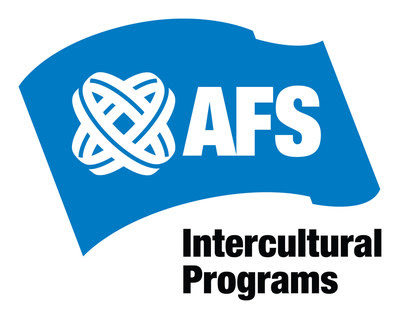NEW YORK, Aug. 4, 2022 /PRNewswire/ — Women and girls who seek to advance their STEM education have long faced incredible challenges in a field traditionally dominated by men. At the same time, recent events have highlighted the soaring population of 89.3 million refugees, displaced and stateless people around the world – almost 27% of whom are women and girls under 18. International education, and especially virtual exchange, is rarely used to address such issues, even though it can be a powerful way to broaden opportunities for marginalized groups.

AFS Intercultural Programs, a global non-profit renowned for its intercultural exchanges has run programs funded by bp since 2011 for young people in STEM. In 2021, the two organizations launched an ambitious 5-year initiative aimed at giving 5,000 young people scholarships, with an emphasis on diversity and inclusion, and a particular focus on supporting young women. The AFS Global STEM Accelerator program, which launched in June 2022, is a full-scholarship, virtual exchange program designed to provide 180 young women worldwide with access to education in sustainability, STEM (Science, Technology, Engineering, and Math), and positive social impact.
The refugee crisis affects more than 89.3 million people globally, including the millions of displaced people from Syria, Venezuela, Sudan, and Myanmar. Since February 2022, the world has seen millions of Ukrainians being forced to flee their homes.
The immediate public response to refugee crises is often focused on meeting urgent humanitarian needs. However, education is a basic human right that is often denied to refugee youth. This is especially true of young refugee women. It’s also, according to the UNHCR, a critical part of any international refugee response.
With this in mind, AFS, with support from bp, increased the number of scholarships to ensure that young refugee women were included in the AFS Global STEM Accelerator Program. Recognizing the need to execute outreach thoughtfully, AFS partnered with SPARK, an international non-governmental development organization active in 14 regions throughout the Middle East, North and Sub-Saharan Africa. For over 28 years, SPARK has created pathways for young people to rebuild their futures, and provide opportunities for youth, particularly women and refugees, to study, work and grow their own businesses in fragile communities.
“Global citizenship education has to be accessible to everyone. We are so excited that we could work with bp and SPARK to make this program accessible to young people that are often excluded from these opportunities, but in reality need them the most,” says Daniel Obst, AFS President and CEO.
The AFS Global STEM Accelerators program received 1,083applications from 71 countries worldwide, including applicants from Afghanistan, Ukraine, Nigeria, and Syrian refugees in Turkey. Applications were open to young women (ages 15-17.5) globally, with a keen interest in becoming changemakers in their communities. AFS allocated 20% of scholarships specifically for refugees and girls from displaced populations, whether from war, violence, or natural disaster.
The 180 scholarships awarded to young women from 61 countries reflect the diversity and inclusion the program seeks to achieve:
- 20% of recipients identify as refugees or from displaced communities
- 82% of recipients identify as People of Color
- 51% of recipients come from low-income households
- 10% will be the first in their families on track to graduate from high school
AFS and bp recognize that access to technology and internet connectivity is inequitable globally and are prepared to support these needs.
“It is exciting to see such strong interest from these brilliant young women,” says Kerry Dryburgh, EVP people & culture, bp. “With their passion to make a difference and the skills they will learn, they are future changemakers, leaders and innovators – we wish them the very best for their journey.”
The words of the scholarship recipients further support the claim that virtual exchange is a powerful tool for expanding access to educational opportunities.
“I am from a traditional Pashtun society, where in my province girls don’t even have the right to go to school. In each corner of my country, gender inequality is vivid. All these challenges give me the strength to create my own identity and to be different from my surroundings. Participating in this program will be my first step toward achieving my goal to explore the world and become someone influential in improving sustainable societies.” – Harira, from Afghanistan
The AFS Global STEM Accelerators program culminates with scholars developing social impact capstone projects and presentations that offer potential solutions to real-world challenges, with an emphasis on sustainability. Participants receive the Advanced Certificate on Global Competence for Social Impact, awarded by AFS and the University of Pennsylvania, along with official validation on their capstone projects from the University of Pennsylvania Center for Social Impact Strategy. Students’ learning and capstone development is guided by a diverse facilitation team representing twelve qualified facilitators (all women) from nine countries.
Upon program completion, scholars will be invited to join the alumni community offering diverse mentoring opportunities, skills development sessions, panel discussions and further development opportunities. Scholars will also be invited to participate in the AFS Youth Assembly, a global gathering of young people actively tackling the United Nations Sustainable Development Goals.
Photo – https://mma.prnewswire.com/
